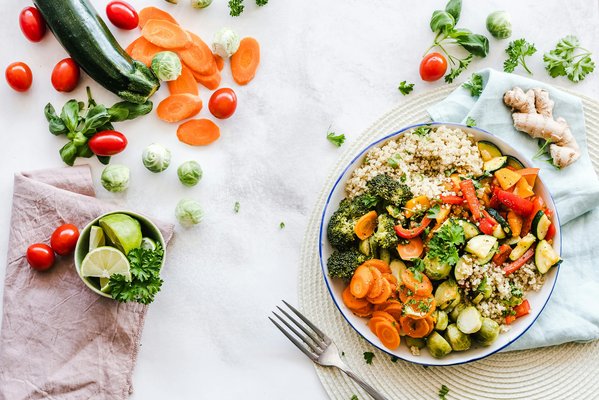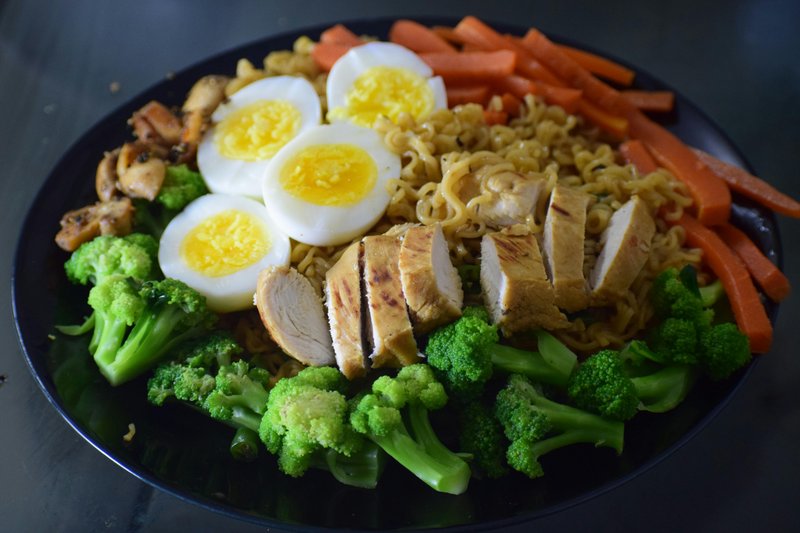The Perfect Plate: How to Build a Balanced Meal

As a registered dietitian serving the greater Youngstown area, one of the most common questions I get is: “What should I eat to be healthy?”
The truth is, the answer depends on your individual needs, health goals, and lifestyle. But one simple place to start is by learning how to build a balanced meal. This approach makes healthy eating realistic whether you’re cooking dinner at home, grabbing lunch out and about, or shopping for groceries right here in Poland.
What Does a Balanced Meal Look Like?
Think of your plate as a puzzle where each piece plays an important role:
1. Lean Protein
Protein supports muscle health, repairs tissues, and helps you stay full. Aim to fill about ¼ of your plate with:
-Skinless chicken or turkey breast
-Fish such as salmon, tuna, or cod
-90% lean ground beef
-Low-fat Greek yogurt or cottage cheese
-Plant-based proteins like tofu, tempeh, or edamame
2. High-Fiber Carbohydrates
Carbs fuel your body and brain. Choosing fiber-rich options keeps your energy steady and supports digestion. Try:
-Fresh fruit (berries, apples, oranges)
-Whole grains like oatmeal, brown rice, or quinoa
-Legumes such as beans, chickpeas, or lentils
-Sweet potatoes or other root vegetables
3. Non-Starchy Vegetables
Half your plate should be filled with colorful vegetables. They’re low in calories but rich in vitamins, minerals, and antioxidants:
-Leafy greens like spinach or kale
-Tomatoes, cucumbers, or bell peppers
-Zucchini, broccoli, or cauliflower
4. Healthy Fats for Flavor
Fats add flavor, keep you satisfied, and help your body absorb nutrients. Choose healthy sources such as:
-Avocado slices
-Nuts and seeds (almonds, chia, sunflower)
-Olive oil or vinaigrette dressings
-Nut butters in moderation
Example of a Balanced Plate
Here’s what a simple, balanced dinner could look like:
-Grilled chicken and eggs (protein + healthy fat)
-Rice noodles or quinoa (fiber-rich carb)
-Roasted broccoli and carrots (non-starchy veggies)
-Olive oil & lemon dressing (healthy fat)

Why This Matters for Families
Whether you’re busy running errands or just at home making dinner, using the balanced plate method makes it easier to eat well without overthinking. It’s a flexible approach that works for kids, adults, and anyone trying to live a healthier lifestyle.
Final Thoughts
Building a balanced meal doesn’t have to be complicated. By filling your plate with lean protein, high-fiber carbs, colorful vegetables, and healthy fats, you’ll create meals that support energy, fullness, and long-term health.
✨ If you’re in the Poland or Youngstown, Ohio area and looking for personalized nutrition support, I’d love to help you reach your goals. Contact me today to learn more about working together.
About the Author

Darby Heiland
MS, RDN, LD
Registered Dietician Nutritionist
Related Posts

What to Expect at Your First Therapy Session | Empower Counseling, Poland OH
Starting your first therapy session can feel intimidating. Learn what to expect at Empower Counseling …